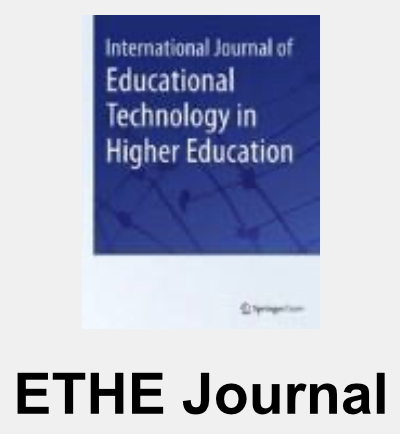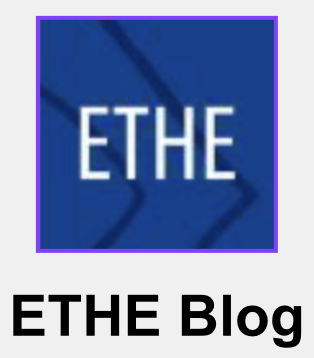Start: 01-09-2019 – End: 31-08-2022
Project Reference: 2019-1-UK01-KA201-061508
EU Grant: 429906 EUR
Programme: Erasmus+
Key Action: Cooperation for innovation and the exchange of good practices
Action Type: Strategic Partnerships for school education
Key words: New innovative curricula/educational methods/development of training courses Intercultural/intergenerational education and (lifelong)learning ICT – new technologies – digital competences
Research Team: Teresa Romeu, Marc Romero, Juliana Raffaghelli
Project Website: https://ec.europa.eu/programmes/erasmus-plus/projects/eplus-project-details/#project/2019-1-UK01-KA201-061508
Description of the project
Increased access to digital technologies and social media has created new opportunities and challenges for education. New tools are used by schools to support teaching, learning and interaction (Rosenberg et al., 2018), facilitate teachers’ professional development (Lantz-Andersson et al., 2018) and promote online school-related conversations with parents and other audiences (Kimmons et al., 2018). Despite these educational and other opportunities, their use challenges existing pedagogical models and raises questions in relation to educators’ digital literacies. Some of these challenges include ensuring that digital technologies are used in pedagogically meaningful ways to support teaching, learning, communication, collaboration without, however, leading to the oversharing of student-related, sensitive data. Additionally, there is a pressing need to cultivate ‘a critical disposition in a context in which technical proficiency is prioritised’ (Pangrazio, 2016, p. 163). Notwithstanding the importance of acquiring technical skills, enhancing teachers’ critical disposition and critical digital literacies is more significant as these competences are transferable across digital contexts and, therefore more relevant to the fast-paced realities of everyday digital practices (ibid).
In the above context, the project aims to raise awareness amongst educators and support them in developing critical digital literacies in relation to the use of digital technologies and social media. This will involve reconceptualising the notion of digital literacies in order to look beyond functional ICT skills and e-safety and encompass instead a richer set of critical digital literacies that are tailored specifically to educators’ personal and professional needs within a school context.
The project’s rationale is aligned with a range of policies that focus on the importance of digital literacy at national and supranational level (European Commission, 2018; UNESCO, 2018). In particular, the project objectives are the following:
- develop an understanding of teachers’ needs in relation to critical digital literacies within a school context;
- raise educators’ awareness regarding the complexity of using digital technologies and social media for educational and institutional purposes;
- raise educators’ awareness on how to use social media for professional development and lifelong learning;
- empower and educate educators so that they can take informed decisions regarding digital technologies and social media use and what they share online within the context of the school setting;
- educate educators so that they can make pedagogically meaningful and safe use of digital technologies;
- create and user-test in collaboration with educators a range of intellectual outputs and resources on the topic of critical digital literacies (e.g. MOOC and toolkit).
This 36 month project involves a consortium that consists of the following nine partners in four EU countries: i) four HEIs and one research institute with expertise in the fields of digital technology use in schools, digital literacies, teacher training and e-learning; ii) four partners schools who have been active adopters of a range of digital technologies and social media tools and are keen to enhance their understanding and competences in relation to critical digital literacies.
The planned activities include the production of four intellectual outputs, three learning, teaching and training activities and two multiplier events. The intellectual outputs will consist of a scoping study and the development of a critical digital literacies framework, a MOOC, an online toolkit for schools and academic outputs.
It is anticipated that this project will have theoretical, policy and practice impact. First, it is hoped that the findings and the relevant academic outputs will have a theoretical impact by developing new and innovative conceptualisations of critical digital literacies within the context of contemporary schools. Second, the project will lead to important policy and practice insights for addressing the development of teachers critical’ digital literacy competences. Furthermore, it is expected that the project will have a considerable impact on individual participants, on the participating organisations at institutional level as well as on other external ‘adopters’ of the MOOC and online toolkit. These expected impacts and benefits will include the development of an in-depth understanding regarding the complex issue of using digital technologies in educational and professional contexts as well as the acquisition of relevant digital competences. To this end, it is anticipated that the project will impact schools at institutional level and bring about pedagogical change in relation to digital technology use in pedagogically meaningful and critical ways. This will be potentially reflected in changes to pedagogy, curricula and assessment practices.


